process notes | #8: no mistakes, only choices
Hi creative friends,
I hope this note finds you enjoying the last of fall color, and the extra hour of sleep this weekend, some small compensation for the winter’s early darkness. Yesterday was sunny and crisp and I went for coffee and a walk in a different part of town, enjoying the colors and architecture of 1920s bungalows, how the sunlight across the leaves turned the day gold.
Since my last letter:
I took a 3 day sourdough baking class, igniting more creativity in the kitchen (and outside it) — this is a very bread focused newsletter today!
I visited some beautiful gardens in Victoria, British Columbia
If you would like to comment on this newsletter, just hit reply and send me an email.
Also, in September, I printed a zine called “Writing is a Kitchen.” It’s a short essay about writing as a gathering place, a source of pleasure, and a repository of memories. Learn more about the zine here. And then pop over to this form and I’ll send you a copy!
Making: Lots and lots of bread
Lately I’ve been dreaming of flour and yeast. As a birthday gift for my mom, my brother and I signed us all up to take a 3 day sourdough bread class together at the King Arthur Baking School in the Skagit Valley, an hour north of Seattle.
Baking is part of my creative practice, and one overarching takeaway I took from the class was the idea that, after a certain point, there aren’t mistakes—only choices and their execution.
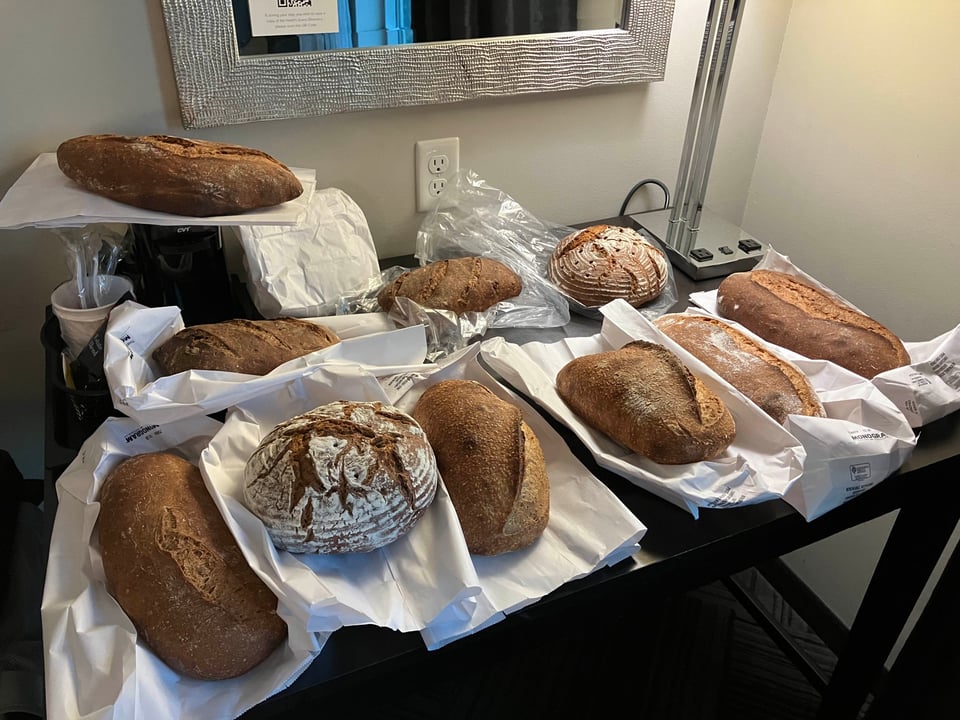
You have to learn the fundamentals, of course—how bread is made, how to handle the dough, what to look for—which is an ongoing, never finished process. But past that, the instructors explained, you get better by learning to make and execute on choices. The instructors deliberately provided bare bones recipes with room for customization, and showed us how we could manipulate the proportions of flour and water within a bread recipe to achieve different effects. If you dream of a bread with an airy, open crumb, then you add more water, and learn to handle the wet, sticky dough that results. It’s not better or worse; it’s just a choice.
No mistakes, only choices! When I’m writing, I often put on blinders, focused on only on, how can I write it better? But “better” is a perpetually moving goalpost, and it only gives my perfectionism more oxygen.
The class reminded me to instead direct my energy toward the effect I want to create, and then consider the choices I can make to get there. If I don’t know what the choices even are, or I’m not sure how I’d actually carry them out, then I know what to study or seek help with. Success or failure, then, might become less about me, my ego, my ability to perform being “a writer,” and more about how the extent to which the work delivers on the choices it makes.
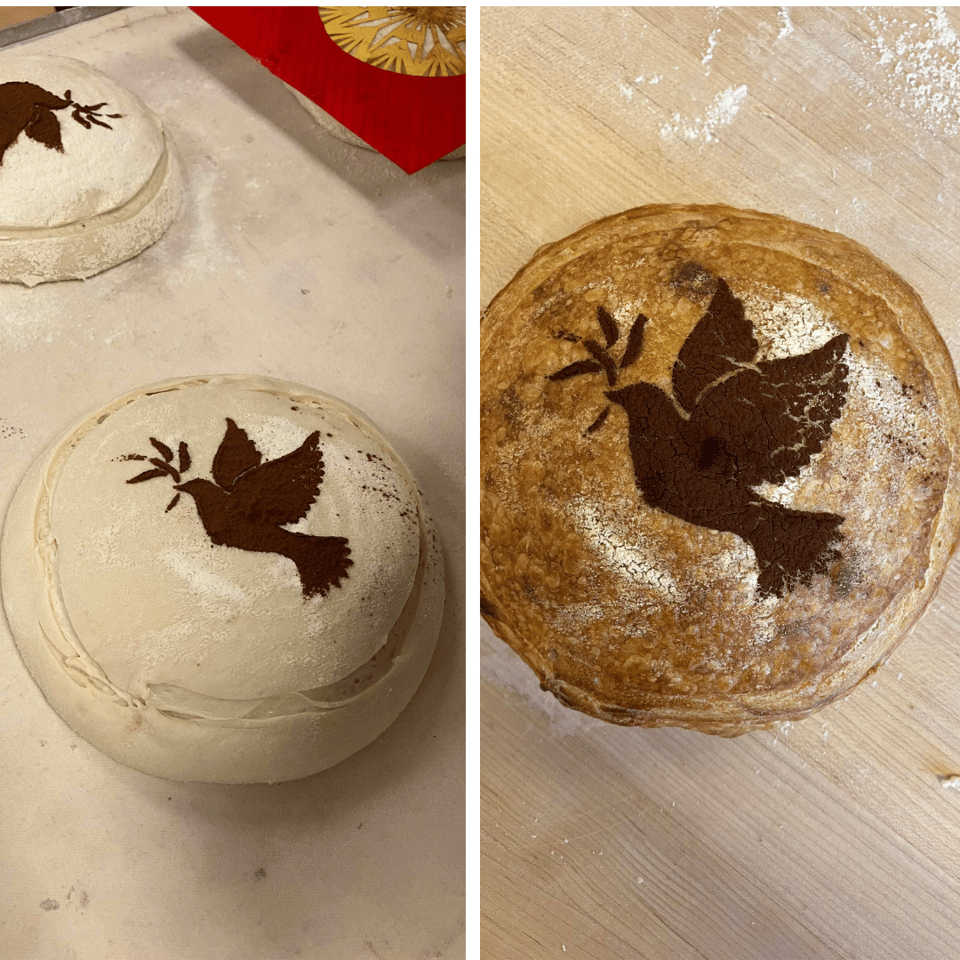
Sharing: Beautiful gardens
While out on the West Coast, we also visited Victoria, British Columbia, and spent a beautiful afternoon at the Butchart Gardens.
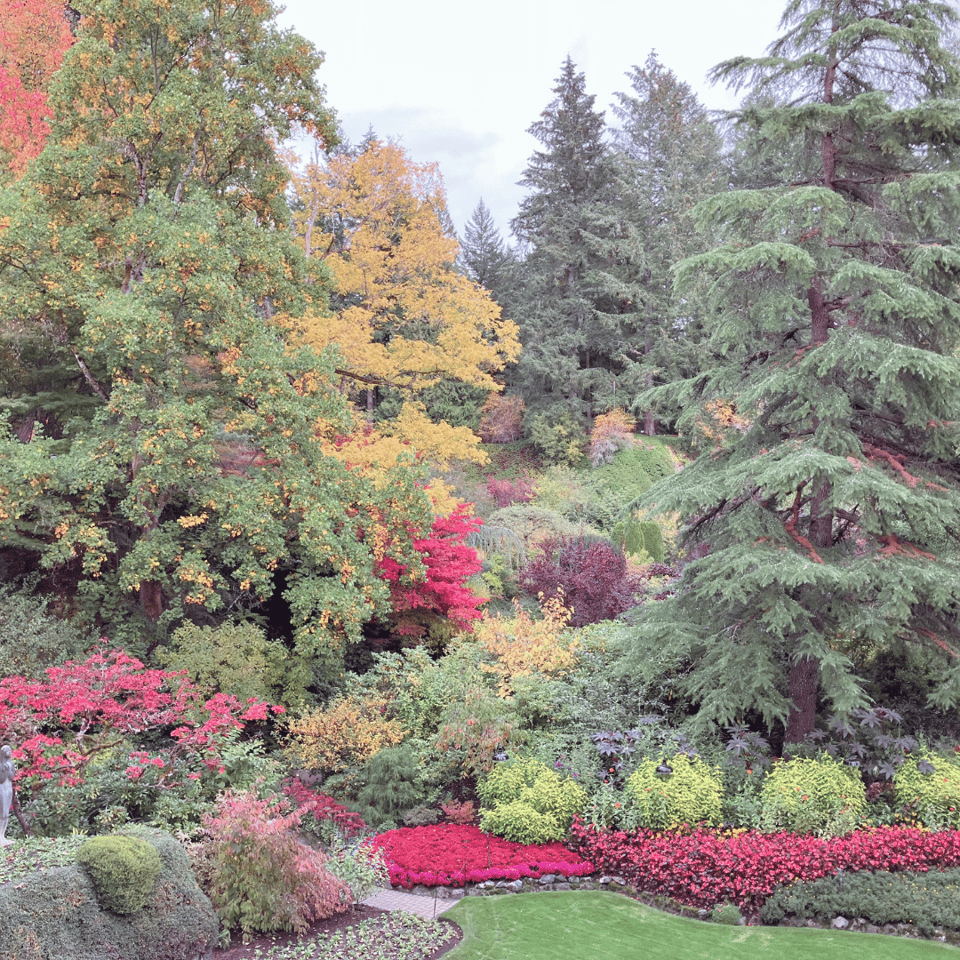
These gardens were created in the early 1900s by Jennie Butchart, the wife of an Ontario cement magnate. At the turn of the century, the couple moved to Vancouver Island, which had more of the raw limestone needed to make cement. The gardens were once a limestone quarry: when the limestone was all used up, Jennie made plans to erect a garden in its place.
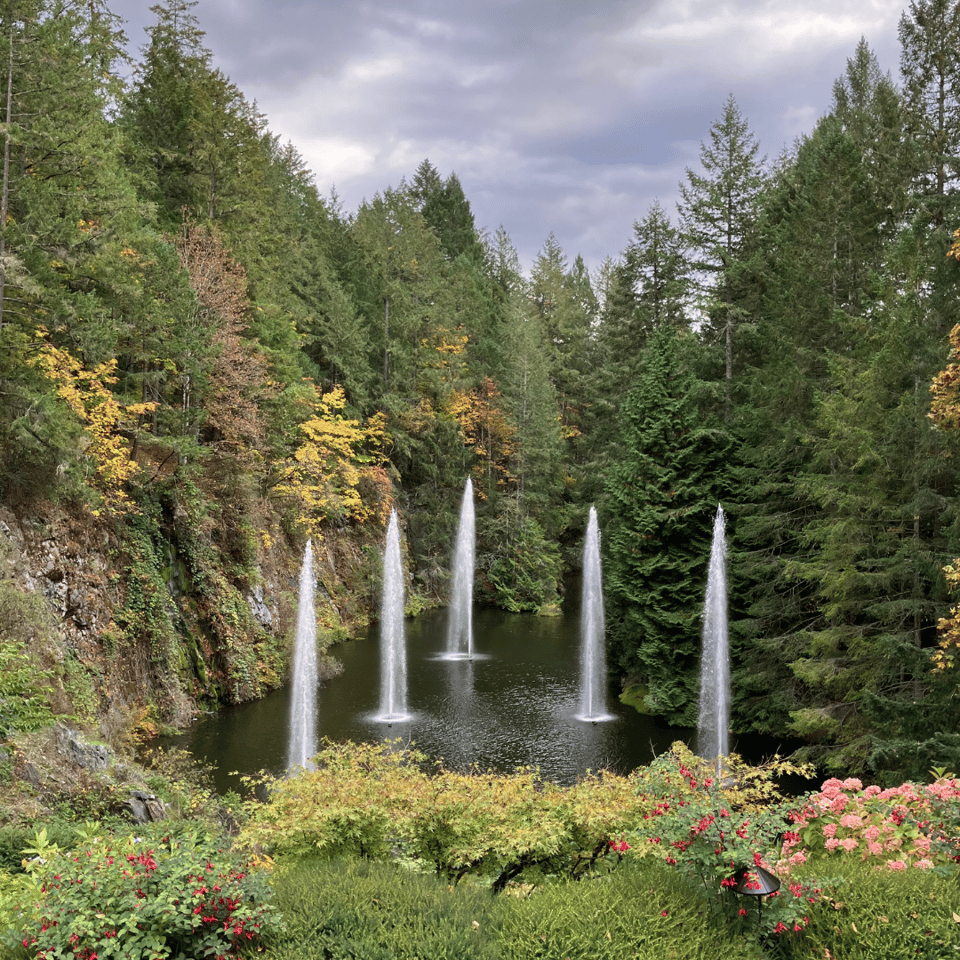
When I got home, I read Elaine Scarry’s book On Beauty and Being Just (which I wrote more about here). She describes how encounters with beauty—the splendor of a garden, the deep color of a dahlia or a rose or a Japanese maple tree—reveal the “aliveness” inherent in every living thing:
When we come upon beautiful things, they act like small tears in the surface of the world that pull us through to some vaster space….we find we are standing in a different relation to the world than we were a moment before. It is not that we cease to stand at the center of the world, for we never stood there. It is that we cease to stand even at the center of our own world. We willingly cede our ground to the thing that stands before us.
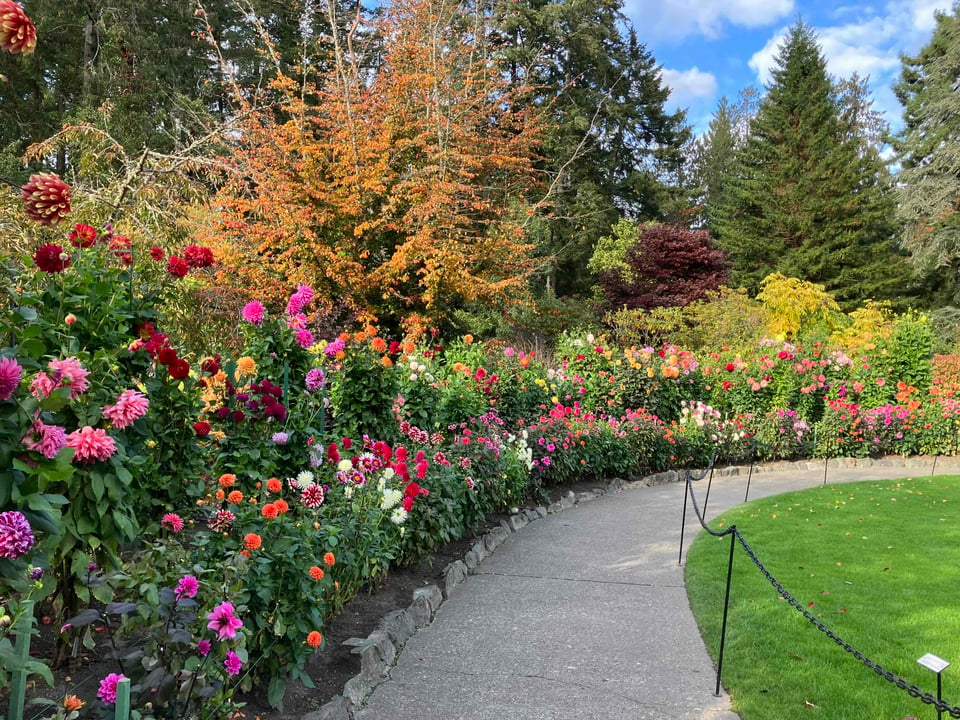
And one last poem
I love Margaret Atwood’s poetry, and this poem, “All Bread,” might become one of my new favorites.
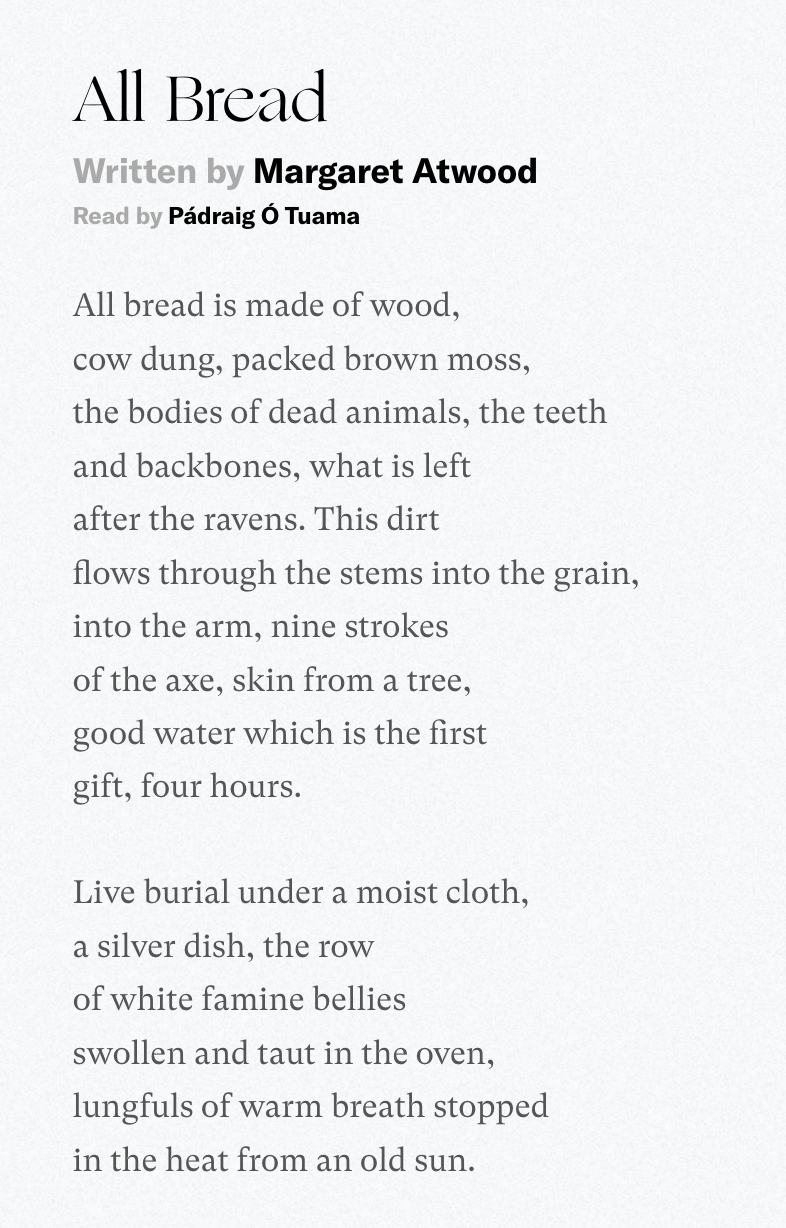
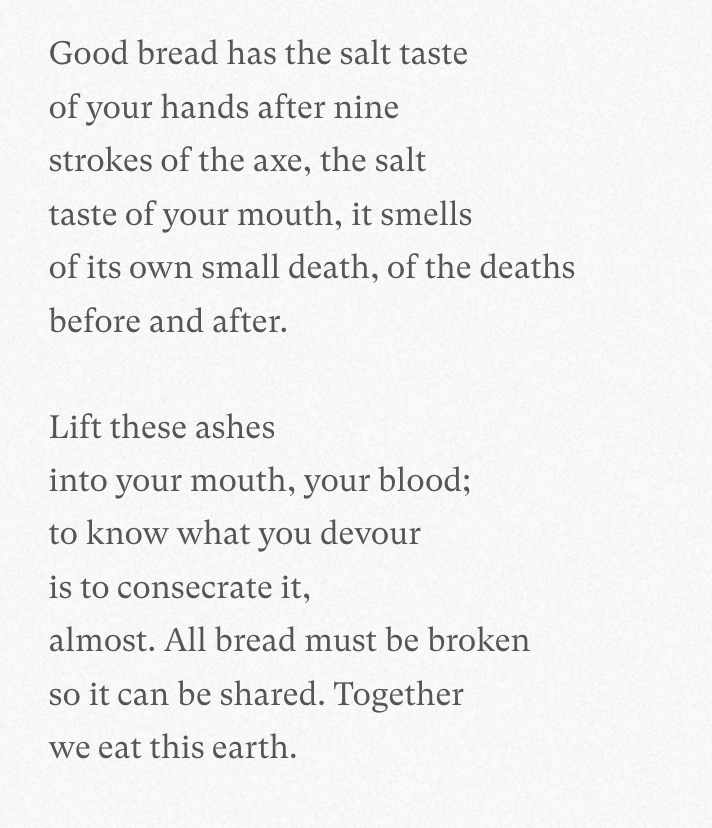
.
.
.
Wishing you all the best, and take good care of yourselves with the election this week—
Catherine